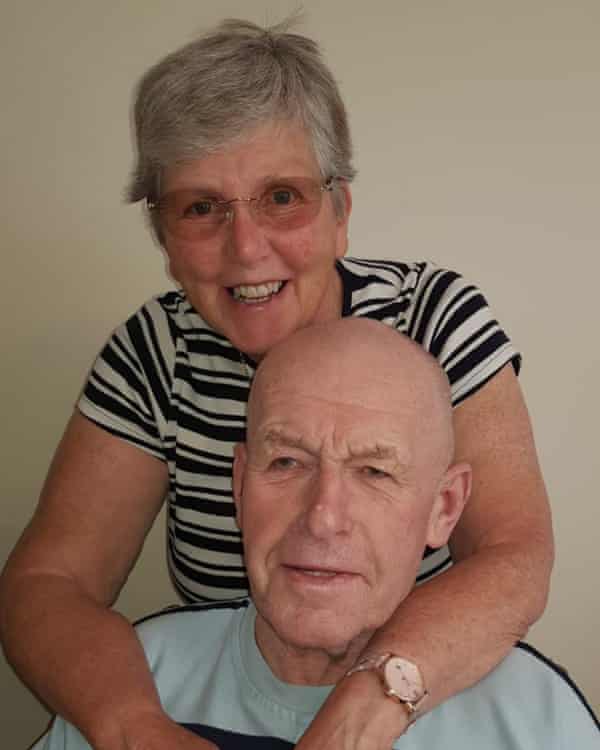Families of care home residents fearing another lockdown if a new Covid variant spreads are urging the UK government to enshrine visits for essential carers in law.
More than 225,000 people have signed a petition calling for the right to be guaranteed, amid warnings from residents’ groups that too many care home operators are restricting visits unnecessarily and that a new Covid wave could plunge vulnerable residents back into months of isolation.
The call is being backed by the shadow care minister, Liz Kendall, while parliament’s joint committee on human rights, chaired by Harriet Harman, has proposed legislation that would ensure every resident has access to an “essential care giver” as an extension of the paid care team. From Tuesday, care home residents will no longer be required to isolate for 14 days after visiting gardens of friends and family or going for a walk with them outdoors.
Government guidance this month set out the right of every resident to nominate two named regular visitors and said individualised risk assessments should be completed for more vulnerable residents to allow an essential care giver to provide frequent support.
But it does not have statutory force and relatives are reporting distress that some care homes are not offering essential care giver status and that nominated visitors are being given tightly limited access.
However, Care England, which represents the largest private care operators dismissed the campaign to make visits a legal right, saying it was wrong to put visiting above resident safety.
“We have lost over 30,000 people in care settings [from Covid] and it’s all very well talking about human rights but you don’t have any human rights if you are dead,” said Martin Green, the chief executive of Care England. “If we had a new variant and it was enshrined in law that [essential care givers could come and go], it would put people at grave risk.”
Brendan Black, 84, says he is only able to visit his wife, Joan, 83, for 15 minutes a week at her care home in Norfolk, even though they have both had two doses of vaccine. He used to spend three or four hours a day with her, drinking tea, reading and completing puzzles.

“It’s upsetting,” he said. “We have been married for 64 years. We were only apart when I was on national service in the 1950s. It’s heartbreaking. I think about her every day.”
He asked to become an essential care giver, which would allow him more frequent access, but the care home manager told him: “We don’t need it here.”
Black is being supported by the Relatives and Residents Association, whose director, Helen Wildbore, said: “We are hearing providers aren’t doing individual assessments so they don’t know if someone needs an essential care giver.”
Diane Mayhew, a co-founder of the Rights for Residents group, which started the petition, said some care homes were only allowing time-limited visits behind screens or in pods.
Barbara Littlewood, 68, says her husband’s nursing home in Yorkshire only allows her to visit once a week for 20 minutes in an outdoor pod and she is not allowed into his room.
“It’s just as if he has been kidnapped,” she said. “I used to go every single day to give him his dinner.”
On the last three occasions he has been wheeled out to see her while asleep and has not woken up at all during the visits. “He knew me before the start of the pandemic and now he doesn’t,” she said.
The regulator of care homes in England, the Care Quality Commission, told Harman’s committee last month it was “aware of a growing number of concerns about possible blanket bans”.
Kendall said: “There was a big fanfare about [care home visits] coming back, but for many it’s either not happening or it’s not meaningful. Family is integral to our physical and mental wellbeing.”
The Equality and Human Rights Commission told parliament last week that it “would not rule out litigation if we identify a serious or systemic breach and we consider that our action would achieve a successful outcome.” It can challenge care providers for breaches of the Equalities Act.
On Friday, Boris Johnson said: “It is my priority to keep increasing visits for residents in the coming weeks in a safe and controlled way.”
Helen Whately, the care minister, said: “I look forward to encouraging more visiting and trips out in future as we turn the tide on this cruel virus.”
This content first appear on the guardian
